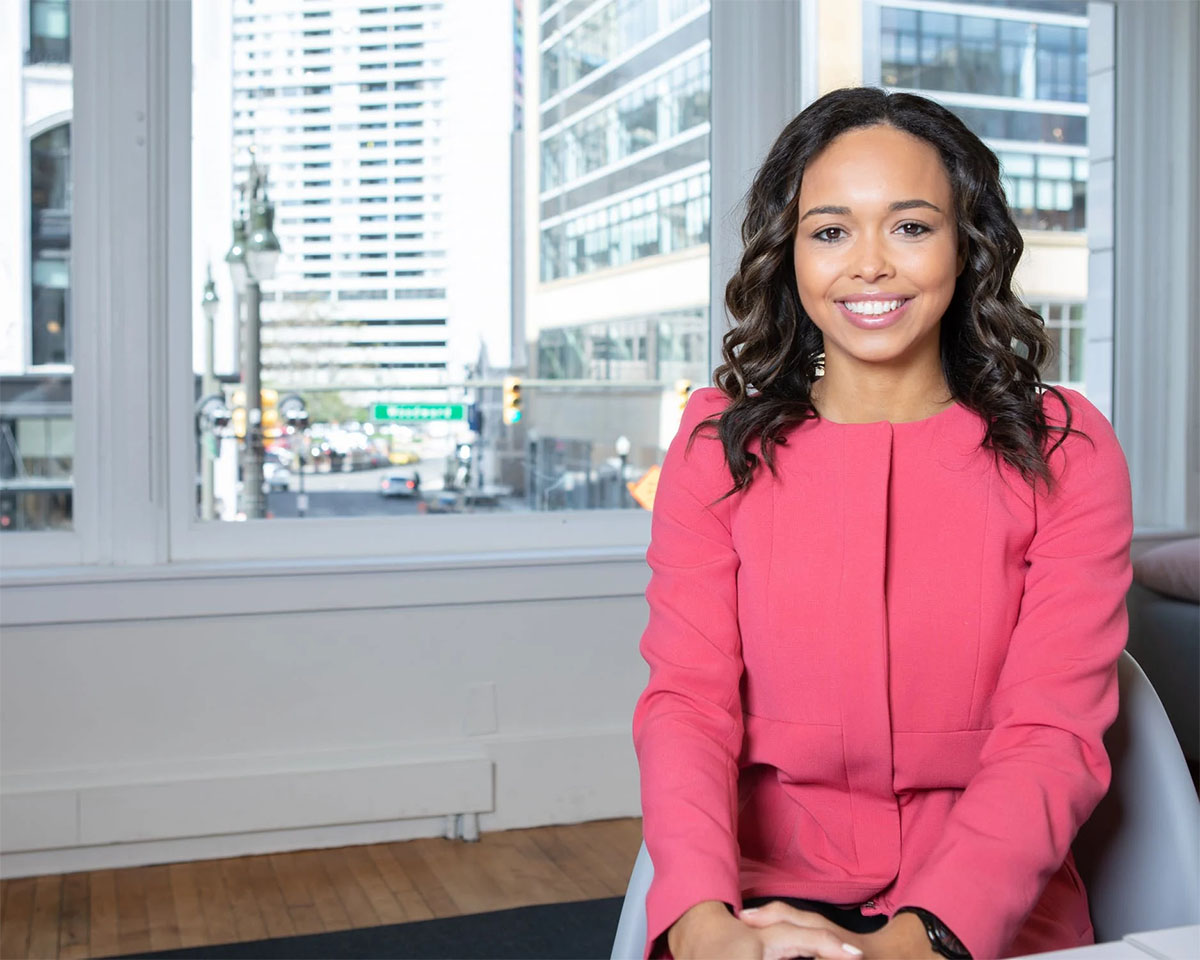Every woman facing a mastectomy should be given the information she needs to make an informed decision about breast reconstruction. Ideally, your breast surgeon will discuss all breast reconstruction options with you and offer a referral to a plastic surgeon before your mastectomy surgery. But this doesn’t always happen.
In the United States, not all women have the same access to information or care when it comes to breast reconstruction. Black women are one of the groups that face more barriers to getting breast reconstruction. Studies show that Black women have breast reconstruction at much lower rates than white women.1
“I have Black patients who tell me no one on their medical team mentioned the possibility of getting immediate reconstruction when they had a mastectomy and they didn’t know to ask about it. I never hear that from white patients,” said Aisha Baron, M.D., a plastic and reconstructive surgeon at Breast Body Beauty Plastic and Reconstructive Surgery in Marietta, Georgia.
Sometimes breast reconstruction isn’t discussed when breast cancer is more advanced, and Black women are more likely to be diagnosed with breast cancer that’s at an advanced stage, Dr. Baron said. Breast reconstruction also may not be discussed when a patient lives in an area without a plastic surgeon nearby. But Dr. Baron said that these patients should still be offered a consultation with a plastic surgeon.
Insurance can also be a barrier. Black women are more likely than white women to be uninsured or to have public insurance plans that fewer plastic surgeons accept. And Black women who have private insurance are sometimes not aware that their insurance will cover breast reconstruction.
“Unfortunately, within the African American community, there are some health literacy challenges regarding breast reconstruction and there’s a need for more patient outreach and education,” said Paris Butler, M.D., MPH, FACS, an assistant professor of plastic and reconstructive surgery at the University of Pennsylvania Health System in Philadelphia, PA.
Even among women with private insurance who live in areas with the highest numbers of plastic surgeons, white women are 24% more likely to have breast reconstruction than Black women; 26% more likely than Asians, Pacific Islanders, and Native Americans; and 19% more likely than Hispanics, according to Dr. Butler’s research.2
Breastcancer.org hosted a webinar, Racial Disparities in Breast Reconstruction, on October 21, 2020. Watch the recording for expert information and advice before a mastectomy.
If you’re a woman of color who is considering breast reconstruction, here are some tips to help ensure you learn about all your options, find a plastic surgeon you feel good about working with, and get the support you need to make a decision that’s right for you.
1. Know that you have choices
Most women who have a mastectomy are candidates for getting breast reconstruction surgery. Breast reconstruction can help restore the look and shape of the breasts, either at the same time of the mastectomy surgery or at a later point. Most women who decide to get breast reconstruction have choices about how and when their reconstruction surgery can be performed.
Depending on your situation, a plastic surgeon may be able to use implants, tissue transplanted from another part of your body (called “autologous reconstruction”), or a combination of both approaches to recreate your breasts. You may be able to have a nipple-sparing mastectomy (which keeps the skin, nipple, and areola intact) or nipple reconstruction surgery and/or nipple tattoos. You can also choose to “go flat” rather than reconstruct your breasts.
It’s worth taking the time to learn about all the options by:
- doing research online
- talking with other women who’ve had reconstruction or decided to go flat
- talking with a plastic surgeon and your other doctors
“Whether to get breast reconstruction is a very personal decision and it’s not right for everyone, but you deserve the opportunity to make that decision. You shouldn’t have the decision made for you by the system or lack of access to information,” said Frank DellaCroce, M.D., FACS, a plastic surgeon and founding partner of the Center for Restorative Breast Surgery and the St. Charles Surgical Hospital in New Orleans, Louisiana.
2. Meet with at least one or two plastic surgeons
Before you make a decision about breast reconstruction, be sure to meet with at least one or two plastic surgeons to discuss your options, suggests Ruth Celestin, M.D., a plastic surgeon at Celestial Plastic and Reconstructive Surgery in Riverdale, Georgia.
Ask your breast surgeon, oncologist, or primary care doctor for a referral to a plastic surgeon. You can also research plastic surgeons on your own. Look for plastic surgeons who are board-certified, specialize in breast reconstruction, and have experience with all types of reconstruction (including autologous reconstruction).
If you’re considering immediate reconstruction performed at the same time as the mastectomy, you’ll need to choose a plastic surgeon who works at the same hospital as your breast surgeon so they can work as a team.
Your appointment with a plastic surgeon doesn’t have to be in person. A lot of plastic surgeons now offer video visits. Dr. Butler recommends having a friend, family member, or someone else who cares about you join the appointment to take notes and ask questions. “They can be your advocate and another set of listening ears,” he said.
You can also ask the plastic surgeon if you can record your video or in-person appointment so that you can listen to it later.
Here are a few questions you may want to ask a plastic surgeon you’re considering:
- Can I see before and after photos of reconstructions you’ve performed?
- What will my breasts look and feel like after reconstruction?
- How much experience do you have operating on women of color?
- How long will the surgery and recovery be for each type of reconstruction I’m considering?
- What scarring can I expect?
- Do you accept health insurance? Do you accept my insurance?
- Which phone calls and paperwork related to getting my surgery covered by insurance will your office handle, and which am I expected to handle?
Read more Questions to Ask Your Surgeon About Breast Reconstruction.
Keep in mind that you’ll have an ongoing relationship with the plastic surgeon you choose, possibly for years. So, it makes sense to choose one who makes you feel comfortable.
“A plastic surgeon’s communication skills are almost as important as their surgical ones,” said Dr. Celestin. “Since breast reconstruction is often a multi-stage process, you will see your plastic surgeon more often than you see your breast surgeon or some other members of your medical team.”
If you don’t have a good feeling about the first plastic surgeon you meet with, trust your gut and meet with another plastic surgeon. You may need to talk with a few plastic surgeons to get the full picture of what your options are.
“A lot of the women who are unhappy with their reconstruction results are the ones who never sought a second opinion,” said Monique Gary, D.O., M.Sc., FACS, a breast surgical oncologist and director of the breast program at Grand View Health in Sellersville, Pennsylvania.
3. Seek out before and after photos of women of color who’ve had the reconstruction procedures you are considering
It can be difficult to find before and after photos of women of color who’ve had breast reconstruction. Plastic surgeons don’t always have these posted on their websites. But doctors and patients say it’s helpful to see diverse before and after photos showing women of different ethnicities, shapes, and sizes who have had the type of breast reconstruction surgery you are considering.
“Looking at photos of the work of a plastic surgeon you’re considering is especially valuable, but seeing other before and after photos can be useful too. It can give you a sense of the various procedures and of how you’ll look and heal after reconstruction. It can help you know what to expect,” said Dr. Gary.
Often, plastic surgeons have before and after photos that you can look at in their office that aren’t posted online.
 When Suzette Simon of New York City was diagnosed with breast cancer in January of 2020, she decided to have a bilateral (double) mastectomy and immediate reconstruction with tissue expanders that would later be exchanged for breast implants. She met with six plastic surgeons and asked to see photos of their work, including before and after photos of other Black women. These photos were not available online, so she had to go to the plastic surgeons’ offices in person to see them.
When Suzette Simon of New York City was diagnosed with breast cancer in January of 2020, she decided to have a bilateral (double) mastectomy and immediate reconstruction with tissue expanders that would later be exchanged for breast implants. She met with six plastic surgeons and asked to see photos of their work, including before and after photos of other Black women. These photos were not available online, so she had to go to the plastic surgeons’ offices in person to see them.
“It was really important to me to see the level of care each surgeon gave to an operation and how the scars healed,” she said. “In some of the surgeons’ work, I didn’t like the aesthetics and the end result.”
In the end, Simon said, shopping around and looking at photos helped her choose a plastic surgeon she is happy with.
4. Learn what insurance will cover
Some women are hesitant to even consider breast reconstruction because they assume it’s a cosmetic procedure that insurance won’t cover and that they can’t afford it.
“I come across patients who are scared to ask about reconstruction because of the financial implications. When I tell them that insurance companies are mandated to cover reconstruction and most of their expenses will be covered if they have insurance, relief washes over them,” said Dr. Celestin.
The Women’s Health and Cancer Rights Act (WHCRA) of 1998 requires all group health plans and health insurance companies (including HMOs) that pay for mastectomy to also cover all stages of breast reconstruction. This includes procedures that may be needed over time to refine the reconstructed breast or to create symmetry (balance) between the two breasts.
Breast reconstruction procedures are covered whether they are done right away, soon after mastectomy/lumpectomy, or many years later. Twenty-eight states have passed additional laws requiring insurance companies to cover breast reconstruction.
In addition, Medicare covers breast reconstruction, while Medicaid coverage can vary from state to state. No federal laws require government- and church-sponsored plans to cover reconstruction. Also, no federal laws require insurance providers to cover prophylactic (preventive) mastectomy, but some state laws do.
“As part of making an informed decision about whether to get breast reconstruction, call your insurance company and find out exactly what is or isn’t covered,” suggests Dr. Celestin.
Women with government-sponsored plans may have more difficulty finding a plastic surgeon that accepts their insurance.
Whatever your situation, it’s good to be proactive and work with your insurance company and your doctors to get your surgery covered.
 When Tonya Sanders of Monroe, Louisiana, chose to have a prophylactic mastectomy and autologous reconstruction in 2016, she knew that she would have to convince her insurance company to cover the surgery. Sanders has a family history of breast cancer — all six of her sisters, as well as some of her other relatives, had been diagnosed with the disease. However, genetic testing showed that she did not have a known genetic mutation linked to a higher risk of breast cancer. In addition, the plastic surgeon that she wanted to perform her surgery was not in her insurance plan’s network. “I realized that I’d have to plead my case,” she said.
When Tonya Sanders of Monroe, Louisiana, chose to have a prophylactic mastectomy and autologous reconstruction in 2016, she knew that she would have to convince her insurance company to cover the surgery. Sanders has a family history of breast cancer — all six of her sisters, as well as some of her other relatives, had been diagnosed with the disease. However, genetic testing showed that she did not have a known genetic mutation linked to a higher risk of breast cancer. In addition, the plastic surgeon that she wanted to perform her surgery was not in her insurance plan’s network. “I realized that I’d have to plead my case,” she said.
She wrote a letter to the insurance company, explaining why they should cover her surgery and allow her to go to the out-of-network plastic surgeon. And she attached letters from her genetic counselor, radiologist, and gynecologist. As a result, the insurance company agreed to fully cover the surgery.
“If you want to get your surgeries covered, you need to be willing to advocate for yourself, put up a little fight, get a team of people involved, and create a paper trail,” Sanders said.
Watch the video below to hear about Tonya’s prophylactic mastectomy and breast reconstruction experience.
All six of Tonya’s sisters were diagnosed with breast cancer. Because of this strong family history, Tonya chose to have a prophylactic mastectomy and autologous (“flap”) reconstruction, and searched for a plastic surgeon with experience in treating Black women. “I can finally live without that fear.”
If you don’t have health insurance, talk with the social worker or financial assistance counselor at your hospital or cancer center. They may be able to help you get coverage or assistance with paying for surgery. Also, see Breastcancer.org’s tips for people who don’t have health insurance.
Another good resource to know about: Women who are uninsured or underinsured and have been diagnosed with breast cancer can get Medicaid coverage in all 50 states and Washington, D.C., through the Centers for Disease Control and Prevention’s National Breast and Cervical Cancer Early Detection Program. The part of this program that involves accessing Medicaid is sometimes referred to as the Breast and Cervical Cancer Treatment Program. Individual states have different age, income, and other requirements that women must meet to qualify. To find out more, Google the name of your state, “Medicaid,” and “National Breast and Cervical Cancer Early Detection Program.”
5. Be aware that keloid scarring after surgery can be an issue for some women of color
Keloid scars are thick, lumpy, raised scars that can grow larger than the wound that caused them. Black, Asian, and Hispanic people are at greater risk of developing keloids. While it’s not common, sometimes a surgical scar from breast reconstruction surgery can turn into a keloid. The scar could be in the breast area or on another part of the body (such as the abdomen or back) where tissue was removed for autologous reconstruction.
If you know you’re prone to keloid scarring, tell your plastic surgeon before your reconstruction surgery. Sometimes a surgeon may notice that you’ve had keloid scarring in the past by, for example, examining a scar from a C-section. Even if you haven’t had any problems with scars in the past, you may want to check that your surgeon has experience with techniques to prevent and reduce scarring.
According to Dr. DellaCroce, if your plastic surgeon thinks you are at risk for keloid scarring, he or she can use techniques during the surgery that may help prevent keloids from forming. For example, using special material to close your incisions, applying pressure therapy, injecting steroid medicines into the incision line, and applying silicone gel dressings after closing the incision.
If you develop a keloid scar after the surgery, treatments such as silicone gels, silicone gel sheeting, and steroid injections can also minimize the scarring. Your surgeon may recommend a scar revision procedure, which is a type of surgery that may improve how the scar looks and feels. However, be aware that keloid scars can grow back after treatment.
6. Consider joining a community of women who have gone through breast cancer treatment and reconstruction
By joining support groups or online communities for women affected by breast cancer, you can connect with other women who had breast reconstruction or chose to go flat and get more perspective on your options. You’ll be able to ask questions, get advice, and talk about your feelings and experiences with women who understand.
You can find support groups (that meet in person, by telephone, or through video chat) and online communities by searching online or by asking for recommendations from your doctors, social worker, or people you know who’ve had breast cancer.
 For Jenne Beausoleil of Philadelphia, Pennsylvania, who was diagnosed with breast cancer in 2015 at the age of 27, support groups and online communities provided a way to connect with some younger women who had gone through treatment. She joined a local chapter of the Young Survival Coalition and spoke with other members at in-person meetups about their reconstruction choices. She also participated in Breastcancer.org’s online forums, asking for advice and reading other women’s stories about surgeries, treatment, and life after cancer.
For Jenne Beausoleil of Philadelphia, Pennsylvania, who was diagnosed with breast cancer in 2015 at the age of 27, support groups and online communities provided a way to connect with some younger women who had gone through treatment. She joined a local chapter of the Young Survival Coalition and spoke with other members at in-person meetups about their reconstruction choices. She also participated in Breastcancer.org’s online forums, asking for advice and reading other women’s stories about surgeries, treatment, and life after cancer.
“It really helped me prepare for what things would be like when my treatment began,” she said. “Talking with other breast cancer patients became a safe haven for me.” More recently, she discovered an online community for women of color affected by breast cancer called For the Breast of Us. “I wish they had been around when I was first diagnosed,” Beausoleil said.
Here are a few communities to check out:
- Breast Cancer Baddies: a breast cancer community for women of color hosted by For the Breast of Us
- Breastcancer.org’s Community Discussion Boards, including Black Women With Breast Cancer, Breast Reconstruction, Latinas/Hispanics With Breast Cancer, and Living Without Reconstruction After a Mastectomy
- Sisters Network Inc., a national African American breast cancer survivorship organization, which has local chapters in a number of cities
7. Be your own advocate
As you learn about your breast reconstruction options, remember that you can be your own best advocate. Ask questions, make sure you get answers, and speak up for yourself when something doesn’t feel right. It’s not always easy, especially when you’re experiencing the overwhelming emotions sparked by a breast cancer diagnosis. But taking an active role in your care can make a big difference.
Suzette Simon was driven to advocate for herself in part because of what happened to her mom. In the 1980s, her mom was diagnosed with breast cancer and had a unilateral mastectomy (surgery to remove only the breast in which the cancer was found). She didn’t have health insurance and wasn’t offered reconstruction.
“My mom got completely disfigured and thrown away by the system. I now realize she must have had severe self-esteem issues with how she looked,” said Simon.
After her own breast cancer diagnosis, Simon decided that she would get second opinions and make sure she was completely comfortable with every doctor she chose and every treatment decision she made. “You have to fight for yourself,” she said.
Dr. Gary also advises women researching reconstruction to avoid settling and thinking that “I should just feel lucky to be alive.” Over the long term, she notes, feeling satisfied with your appearance can improve your quality of life. “Understand that you have the right to be happy with how you look,” she said. “Know that you deserve to feel whole.”
For more about Black women’s experiences with breast reconstruction, watch Dr. Monique Gary and Ricki Fairley of Touch, The Black Breast Cancer Alliance, co-host an episode of their web show “The Doctor Is In.”
Racial Disparities in Breast Reconstruction webinar
Topics include:
- Understanding the factors that have created racial disparities in breast reconstruction
- The importance of diversity in surgical before-and-after photos
- Finding a plastic surgeon who is the best fit for you
- Choosing which type of reconstruction to have
- Keloid scarring after surgery
- Why it’s important to bring someone with you to appointments
- When to get a second opinion
- Evaluating and choosing your care team
Featured speakers:
- Marisa Weiss, M.D., Breastcancer.org chief medical officer
- Paris D. Butler, M.D., M.P.H., Penn Medicine
- Frank J. DellaCroce, M.D., FACS, Center for Restorative Breast Surgery
- Monique Gary, D.O., M.Sc., FACS, Grand View Health
- Donna-Marie Manasseh, M.D., Maimonides Breast Cancer Center
Written by: Jen Uscher, contributing writer
Sources
- Soni SE et al. Disparities in Use and Access to Postmastectomy Breast Reconstruction Among African American Women: A Targeted Review of the Literature. Cancer Control. 2017;24(4):1073274817729053. Available at https://pubmed.ncbi.nlm.nih.gov/28975838/
- Butler PD et al. Influence of race, insurance status, and geographic access to plastic surgeons on immediate breast reconstruction rates. Am J Surg. 2018;215(6):987-994. Available at https://www.sciencedirect.com/science/article/abs/pii/S0002961017311108
This page was developed with contributions from the following experts:
Aisha Baron, M.D., plastic and reconstructive surgeon at Breast Body Beauty Plastic and Reconstructive Surgery in Marietta, GA
Paris Butler, M.D., MPH, FACS assistant professor of plastic and reconstructive surgery at the University of Pennsylvania Health System in Philadelphia, PA
Ruth Celestin, M.D., plastic surgeon at Celestial Plastic and Reconstructive Surgery in Riverdale, GA
Frank J. DellaCroce, M.D., FACS, plastic surgeon, founding partner of the Center for Restorative Breast Surgery and the St. Charles Surgical Hospital in New Orleans, LA
Ricki Fairley, founder and CEO of Touch, the Black Breast Cancer Alliance in Annapolis, MD
Monique Gary, D.O., M.Sc., FACS, breast surgical oncologist, medical director of the cancer program and director of the breast program at Grand View Health in Sellersville, PA
originally published at https://www.breastcancer.org






